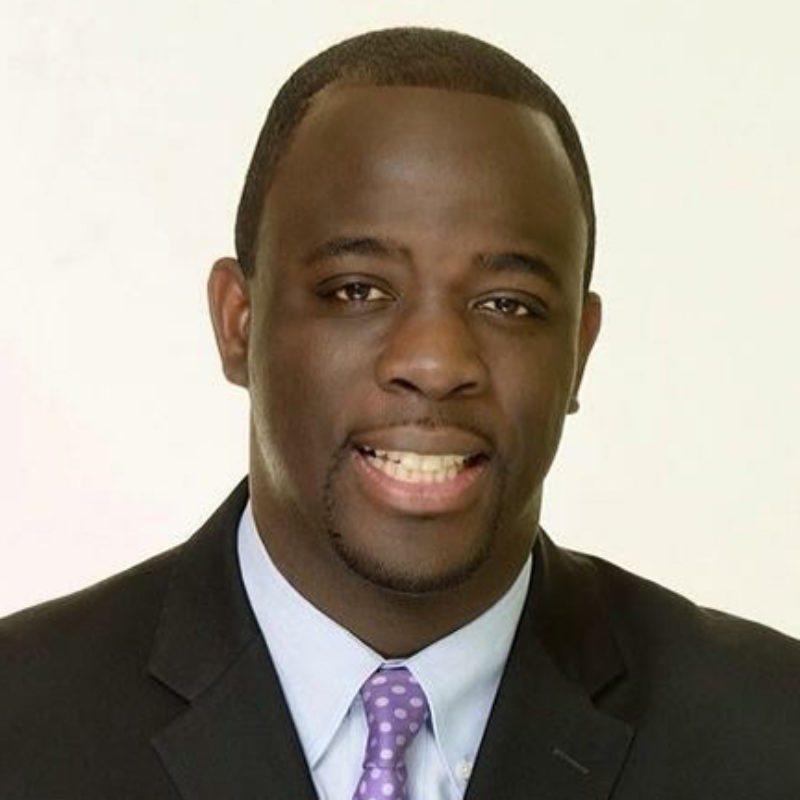After the Chauvin Verdict: What Comes Next
April 23, 2021
I felt it. This pit in my stomach. The fidgeting, restlessness, and inability to concentrate on anything else as I awaited the outcome of the Derek Chauvin trial in Minneapolis. And when the verdict was announced, my heart was full and tears streamed down my face. In this instance, a jury had affirmed what I, and countless among us, knew was true: George Floyd was murdered by Derek Chauvin and a system that continually casts aside the lives of our Black and Brown brothers and sisters. And while the guilty verdict allowed so many of us to exhale momentarily from the collective grief of generations of George Floyd’s, this was no victory. Justice was not served. George Floyd should be alive today.
We continue to mourn George Floyd, Daunte Wright, Adam Toledo, Breonna Taylor and countless individuals killed in racist confrontations with police. They should all be here today. In the aftermath of George Floyd’s murder last summer, I wrote of the perpetual wounds that I, and so many of us, endure from justice long denied. And true justice, equal justice, still has not come. Together we must fight, organize, agitate, protest, vote until justice runs down like water and righteousness like a mighty stream.
So, what comes next? Now is the time for philanthropy to not simply voice its support for Black lives, but to directly fund organizations working to transform policing and reimagine what safety looks like. As a grantmaker at Cal Wellness, I’ve taken on this challenge with my colleagues as part of our Community Well-Being portfolio. Many funders, like Borealis, have been invested in transforming policing for some time, however we at Cal Wellness are newer to this work. Here’s our story.
Since our founding in 1992, Cal Wellness has supported a range of organizations on the frontlines in preventing gun and community violence as well as civic engagement efforts to accelerate organizing and policy advocacy. But we had not actively supported the transformation of policing. Last summer George Floyd reminded us that we could do more, that we had to do more – our grantees and the communities we serve demanded it. Rather than enact a rapid-response strategy, we stepped back, spoke with and listened to our partners, put our hearts and minds to work, and launched an initial $3 million effort to support organizations that are working to transform policing systems and hold them accountable. Meanwhile, our Leading for Power and Change grantmaking portfolio will invest more resources to power-building, civic engagement, community organizing, and leadership development of people of color.
Our racial justice and policing strategy supports organizations that:
- Lead community-driven campaigns for policy change and the effective implementation of policing reforms and system transformation.
- Are led by people of color and are actively engaged in community organizing, mobilization, direct action, field building, and civic engagement to advance policing reform and system transformation.
- Are enhancing data collection focused on policing systems reform and applying insights to create effective policies and programs.
Our support includes funding to community organizations who have been working on these issues for many years, like Ella Baker Center and Dignity and Power Now as well as emerging organizations, like Justice Teams Network and Raheem. We made a commitment to focus funding on BIPOC organizations whose leadership reflected the communities most affected by policing injustices, like Black Organizing Project and Push LA Coalition. And we made deep investments in Black-led efforts, including the Movement for Black Lives, to amplify California work and grow the national movement around police reform.
In this work, we are constantly reminded that we must take the long view to dismantle systemic injustice, racism and white supremacy. Because a year after George Floyd was murdered, we are still asking the question, how many more? How much longer? The killing of a young girl in Ohio by a police officer, in the wake of the verdict in the murder of George Floyd, is a stark reminder that it is our duty to fight no matter how long the battle. Each of us has a critical role to play – from government to philanthropy. Until victory is won.

Alex M. Johnson is a program director at The California Wellness Foundation, where he manages a grantmaking portfolio focused on community environments, violence prevention and healing justice, and youth justice.
